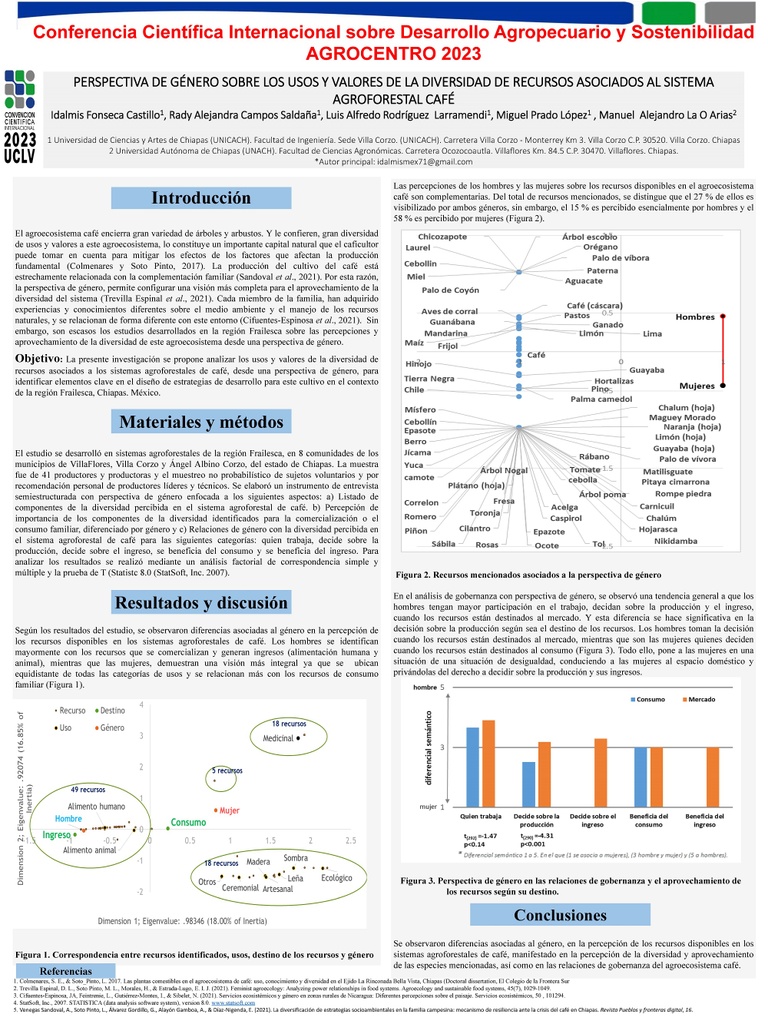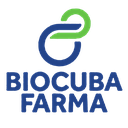Executive Secretary

IX Conferencia Científica Internacional sobre Desarrollo Agropecuario y Sostenibilidad
VII Simposio de Procesos de Innovación Rural

Resumen
Antecedentes: El café es uno de
los cultivos tropicales más importantes a nivel mundial. La región de la
Frailesca constituye un polo cafetalero importante en el estado de Chiapas,
donde los sistemas agroforestales de café son de gestión familiar y constituyen
la fuente fundamental de ingreso de muchas familias campesinas. Objetivo: Con el objetivo de
caracterizar los sistemas agroforestales del café, desde una perspectiva
biofísica, ecológica -productiva y socio - económica, se llevó a cabo un
estudio en tres municipios de la región Frailesca, Chiapas. Metodología: Se elaboró una entrevista
semiestructurada que incluyó variables cualitativas y cuantitativas. Para el
análisis de los datos se utilizó la estadística descriptiva y análisis de
frecuencia, para variables cuantitativas y cualitativas, además de un análisis
factorial de correspondencia para identificar las tipologías. Resultados: Las variables área total,
área dedicada al café y tiempo de ser propietario, fueron sensibles a género.
Las mujeres tienen menos tiempo de ser propietarias y sus predios son
significativamente menores, tanto en área total como cafetalera, y más
especializados en la producción de café. Se registró una gran diversidad de
especies de plantas (157) y usos asociados al agroecosistema café: usos
comestibles, frutales, sombra del café, medicinales, leña, maderables y
ornamentales. Se identificaron cinco tipologías dentro de los sistemas
agroforestales estudiados, según el tamaño del predio, la diversidad,
especialización productiva, capitalización y estructura familiar. A partir de
las correspondencias de éstos, se establece una tipología general, formada por
tres grupos dentro de los sistemas estudiados: Capitalizados, Especializados y
Diversificados. Conclusiones: En la
región de estudio predominan los predios minifundistas. Existe una alta diversidad de especies de
plantas y usos asociados al agroecosistema y se identifican tres grupos dentro
de los sistemas agroforestales café.
Abstract
Background: Coffee is one of the
most important tropical crops worldwide. The Frailesca region constitutes an
important coffee pole in the state of Chiapas, where coffee agroforestry
systems are family-run and constitute the fundamental source of income for many
peasant families. Objective: With
the objective of characterizing coffee agroforestry systems, from a
biophysical, ecological-productive, and socio-economic perspective, a study was
carried out in three municipalities of the Frailesca region, Chiapas. Methodology: A semi-structured
interview was prepared that included qualitative and quantitative variables.
For data analysis, descriptive statistics and frequency analysis were used for
quantitative and qualitative variables, as well as a correspondence factor
analysis to identify typologies. Results:
The variables total area, the area dedicated to coffee and the time of
ownership, were sensitive to gender. Women have less time to be owners and
their farms are significantly smaller, both in total area and coffee area, and
more specialized in coffee production. A great diversity of plant species (157)
and uses associated with the coffee agroecosystem were recorded: edible, fruit,
coffee shade, medicinal, firewood, timber and ornamental uses. Five typologies
were identified within the agroforestry systems studied, according to the size
of the property, diversity, productive specialization, capitalization and
according to family structure. From these, a general typology is established,
where three groups of coffee agroforestry systems were defined. Capitalized,
Specialized and Diversified. Conclusions:
In the study region, smallholdings predominate. There is a high diversity of
plant species and uses associated with the agroecosystem and three groups are
identified within the coffee agroforestry systems.
Sobre el ponente

Idalmis Fonseca Castillo

Discussion

